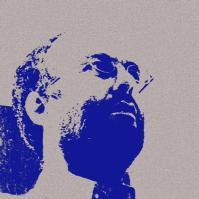Leaderboard
Popular Content
Showing content with the highest reputation on 05/21/2012 in all areas
-
Quite a negative definition of being oneself! I think as long as you are putting the emphasis on others, even though in order to try not to be like them, you are not genuinely being yourself. I think one should not go out of one's way to try not to sound like others, but rather try to positively write what one is genuinely inspired to, what one's inner psyche dictates. In this sense, listening to others' music as a source for compositional ideas (let alone trying to consciously follow their lead or avoid doing so) can possibly even act as a deterrent to originality or being oneself. As a concrete personal example of this, I used to listen to music a lot more before I became more active as a composer. My own definition of "being yourself" would be the following (as already hinted at in the paragraph above): listening to one's own inner voice and trying to compose what it dictates, in the final analysis regardless of one's potential audience's perceived or anticipated reactions, and without any attempt to please or earn their praise. I believe that genius and originality are never (and ought never be) about seeking one's audience's approval or praise, or the reward that would accompany such approval and/or praise. While approval and praise could serve as objective indications or objective criteria of one's success as a composer, they are only the indirect outcome of true originality and the true discovery of one's voice as a composer, never the aim themselves. Should they become the aim (or the conscious aim at least), the music becomes reduced into a mere means to garner praise and social approval and, in my opinion, falls short of the requirements for being characterized as original! "Being oneself" would also mean to compose music related to one's experience and being, and somehow expressing them; not trying to imitate others (whose original music would have come from their own unique experience which one does not and cannot share). I think being original is a challenge in the sense that one has to be oneself in a context of others. Hence one has also to relate to others; to take others' (and humanity's in general) being, experience, and behaviour into consideration (in going about being oneself); to find an ideal balance between these two (being oneself and taking others into consideration) such that one's being oneself (precisely as a composer, insofar as one is composing for any audience, even oneself - in the sense that one exists in a social context and hence becomes oneself FROM it or proceeding from it) is meaningful to others also, communicates something of relevance to others also, and yet such that one's attempts to be meaningful to others and to address others do not get in the way of one's self-fulfilment, self-realization and self-expression as a composer. After all, one has to fulfill oneself and be oneself among other people, unless one plans to live in solitude (but even solitude proceeds from and is a getting away from - and hence takes for granted being in - a society). But composition, to me at least, is a social act. It is the distillation of social experience through the unconscious and the psyche. Even personhood is to some extent socially created. To me composition is not only an act, but a process of active becoming. Perhaps composition is one form of self-creation. Finally, I think being original is often more about saying the same things (others have said before one) in new ways, than about saying something new in the same way (others have said before one).2 points
-
There's so much I want to respond to on this thread, but I think I'm going to have to come back to it at some point. I did say "largely self-taught." In any case, some of them did have very little formal training because some people are just better able to teach themselves. Such people are perhaps few and far between, but they exist. I don't agree that there has to be some correlation between taking lessons and being original. The opposite result is going to be just as likely, and perhaps more likely if you have an overbearing teacher. In my experience, most people tend to be overbearing and authoritarian (in all walks of life, I mean), even if it's not immediately apparent. Do you consider Michelangelo to be an irrelevant sculpturist because he essentially copied Hellenic and Hellenistic techniques and style? How about so much of the rest of the Renaissance movement, which looked backward in an attempt to re-create much of a past civilization? What about the Enlightenment which also did much the same thing? Was Brahms relevant? (Lots of people at the time thought he wasn't.) Shostakovich? Rachmaninoff? Is my English irrelevant because I'm following general spelling and grammar and coming up with "miself 2 xprs phunky nu wayz?" Note, however, that in all those cases, it could never be an exact copy of what had preceded, and I submit that even if there were a composer today attempting to write in a Beethovenian or Mozartean style (I mean an actual good composer, not someone who is doing some superficial copy of their music), it wouldn't be the same and they would eventually develop in another direction. The evidence is in how many other composers started off sounding like someone else (though even there you often sensed their individuality) and developing on their own path.2 points
-
I agree and I think that what is now contemporary will come to be accepted on that developmental line. However, I'm cautious to call it "developmental" in case this implies some kind of musical superiority as time progresses. I think the masterpieces of each period are all equally great: there is great Baroque music and awful Baroque music, great Romantic music and awful Romantic music, great serial music and awful serial music. I suppose I believe, rightly or wrongly, that if the music we create is to be a reflection of our experience and being then it should also reflect the musical language and practices of the point in history which we are experiencing rather than those of a bygone age.1 point
-
If I was putting anything in your mouth that you didn't say, I wouldn't bother to quote.1 point
-
So it's not the memorable characters, nor the compelling stories, nor the precise settings, the defining traits of Austen's or Shakespeare's style, but rather the usage of archaic pronouns. If you ever use pronouns, you'll be producing a second-rate copy of Austen. Guess the same should go for music... Perhaps that's what formal training is most useful for: giving someone the formal means to get himself into a position where he feels entitled to impose his opinions on others. As much as I respect his achievements as a conductor, his (admitted) bullying doesn't quite fit the bill of open-mindedness. Authority fallacy? No. There are narrow-minded jerks on both sides. Sounds like a blatant self-contradiction. Dismissing any new music that draws from Romanticism as "second rate copies" sounds as ignorant and closed-minded, esp. when not bothering to understand it first (or because it's easily understood :thumbsup: ) BTW, you're again attacking the wrong guy. Are you seriously trying to argue that it is not possible to dislike or reject "new" music after attempting to understand it - or that any opposition is just a side-effect of ignorance? Which leads me to assume that the expression of human thoughts and feelings in a compelling way, and the never-ending struggle towards an ideal were only within context between 1825 and 1910.1 point
-
I have a couple ideas, should I PM you about them? and Austenite, I think you'd be a great judge! and I'm not just saying that because I'd lose some very strong competition!1 point
-
1 point
-
People tend to believe law gives more money than it really does. (BTW, I'm a lawyer myself) :P1 point
-
1 point
-
I would say not necessarily.. the result how acceptable the composition will be will determine if it is. Sometimes, composers without formal training are able to create well accepted and successful songs. ___________________________________________ These blogs keep the fire of music burning in me: http://www.scarysquids.com/ http://www.audiomasteringman.com/1 point
-
Plus I've always admired the music of composers like John Powell (The Bourne series, Paycheck) and Howard Shore for his epic LOTR score. I'd love to be in a position where I could create music like that.1 point





